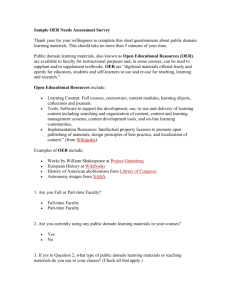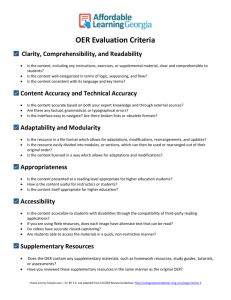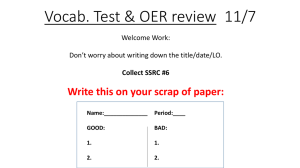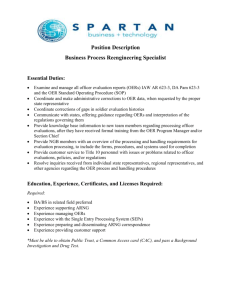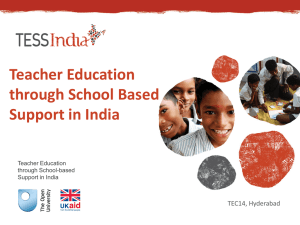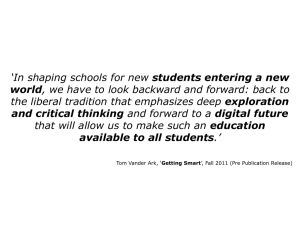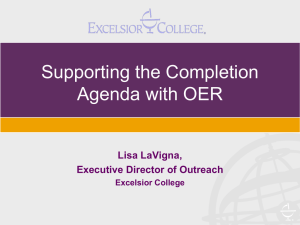Document
advertisement
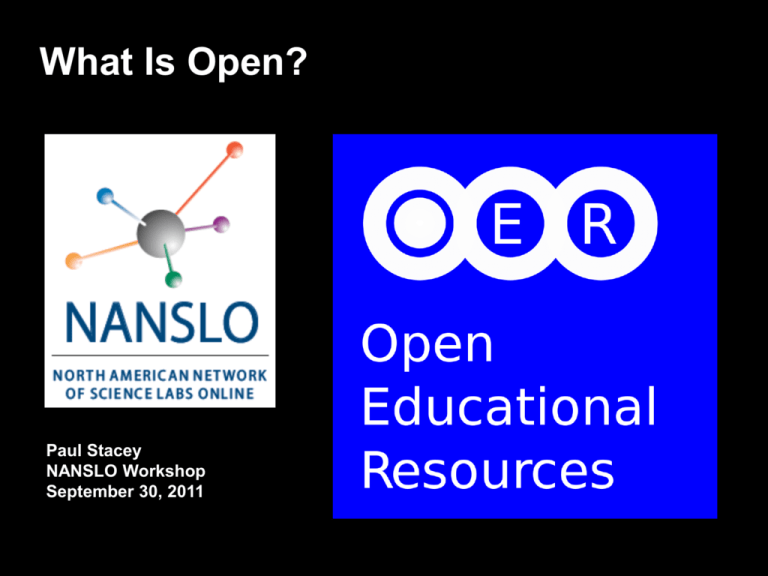
What Is Open? Paul Stacey NANSLO Workshop September 30, 2011 Open Access Free, immediate, permanent online access to the full text of research articles for anyone, webwide. There are two roads to OA: Open Access 1. the "golden road" of OA journalpublishing , where journals provide OA to their articles (either by charging the author-institution for refereeing/publishing outgoing articles instead of charging the user-institution for accessing incoming articles, or by simply making their online edition free for all) 2. the "green road" of OA self-archiving, where authors provide OA to their own published articles, by making their own eprints free for all. Open Pedagogies Massively Open Online Courses Teaching openly in public http://etec522.linden.olt.ubc.ca http://ds106.us Students as co-creators http://strangelove.com Open Data Common Attributes of Open • Free • Access & use is explicitly expressed upfront – not dependent on access copyright, payment of fees, proprietary owner permission • Easily & quickly adapted • Customization & enhancements don't require large investments • Errors, improvements, & feature requests are openly shared & managed • Development, distribution & use is community/consortia based • Sustainability relies on sharing - resources, development, hosting & support • Users are developers Open Educational Resources (OERs) are materials used to support education that may be freely accessed, reused, modified and shared by anyone. The 4 R’s of OER: •Reuse •Revise •Remix •Redistribute Open educational resources use open file formats that make it easy to revise, remix, and repurpose. The best OER are interoperable capable of being used across as many delivery environments as possible. Types of OER • Open educational resources include full courses, course components, modules, textbooks, manuals, research articles, videos, evaluation criteria, tests, and other materials used to support education. • These resources are also known as open courseware or open content. Open Textbooks An openly-licensed textbook offered online. Can read online, download, or print the book at no cost Foundation Funded OER http://cnx.org http://openlearn.open.ac.uk http://ocw.mit.edu Publicly Funded OER http://solr.bccampus.ca http://wikiwijsinhetonderwijs.nl/over-wikiwijs/english http://www.jorum.ac.uk Open Licenses Continuum http://www.creativecommons.org Creative Commons http://creativecommons.org Creative Commons NANSLO http://creativecommons.org/licenses/ http://oercommons.org WikiMedia http://commons.wikimedia.org Open Faculty Open Faculty • Make intellectual projects & processes digitally visible & open to criticism/comment • Do open research • Publish in open access journals • Self archive work for open peer and public review • Create a new type of education work maximizing social learning, participatory pedagogies, connections • Teach open courses • Develop OER with communities of professional peers & students • Use open educational resources developed by others • Assign and author open textbooks Open Student Open Students • Use OER to select institutions & courses of study • Use OER for self-study • Engage in open study around OER with global peers of students • Assemble OER and open/free software tools into personal learning environments • Customize, enhance and develop OER (for credit) • Actively participate in social learning and form networks and connections • Track and use open data on learning to plan and manage learning process • Create open e-portfolios making learning projects, processes, and outcomes digitally visible Open Institution Open Institutions • Work in consortia to develop and use OER for academic programs • Use OER to market & promote programs & courses of study • Use Open Source Software and contribute to developer community • Reward (performance) and support (policy & funds) open access research publishing • Generate and publish open data around learning, scholarly activities, and outcomes/achievements • Create unique identity and establish value by extent of open activity and global benefits
